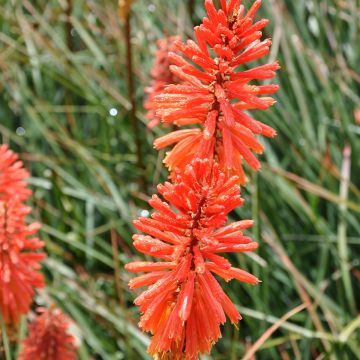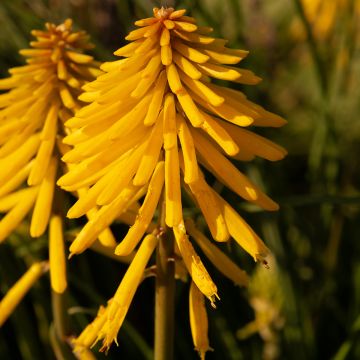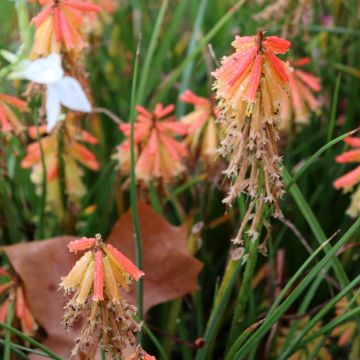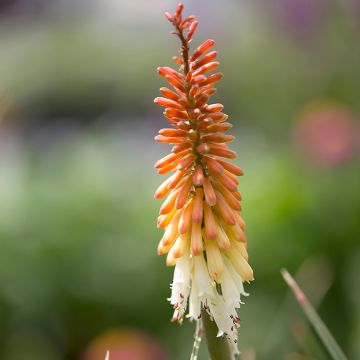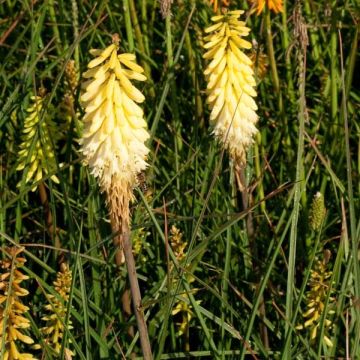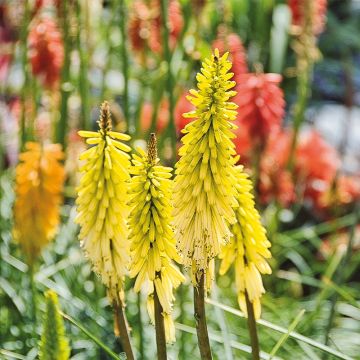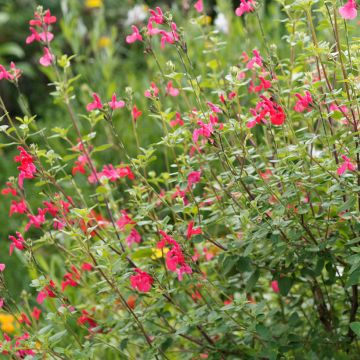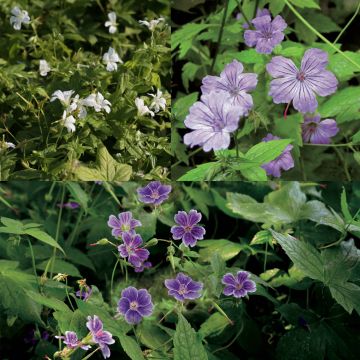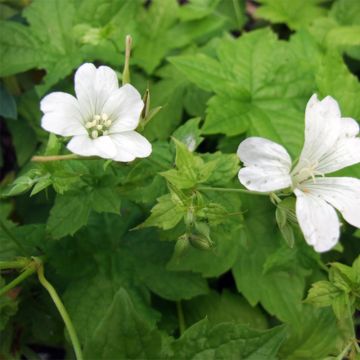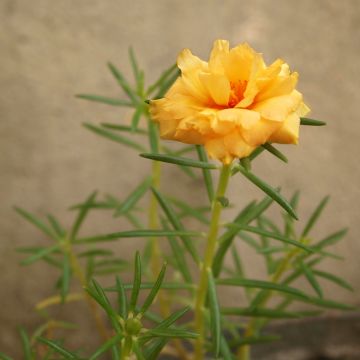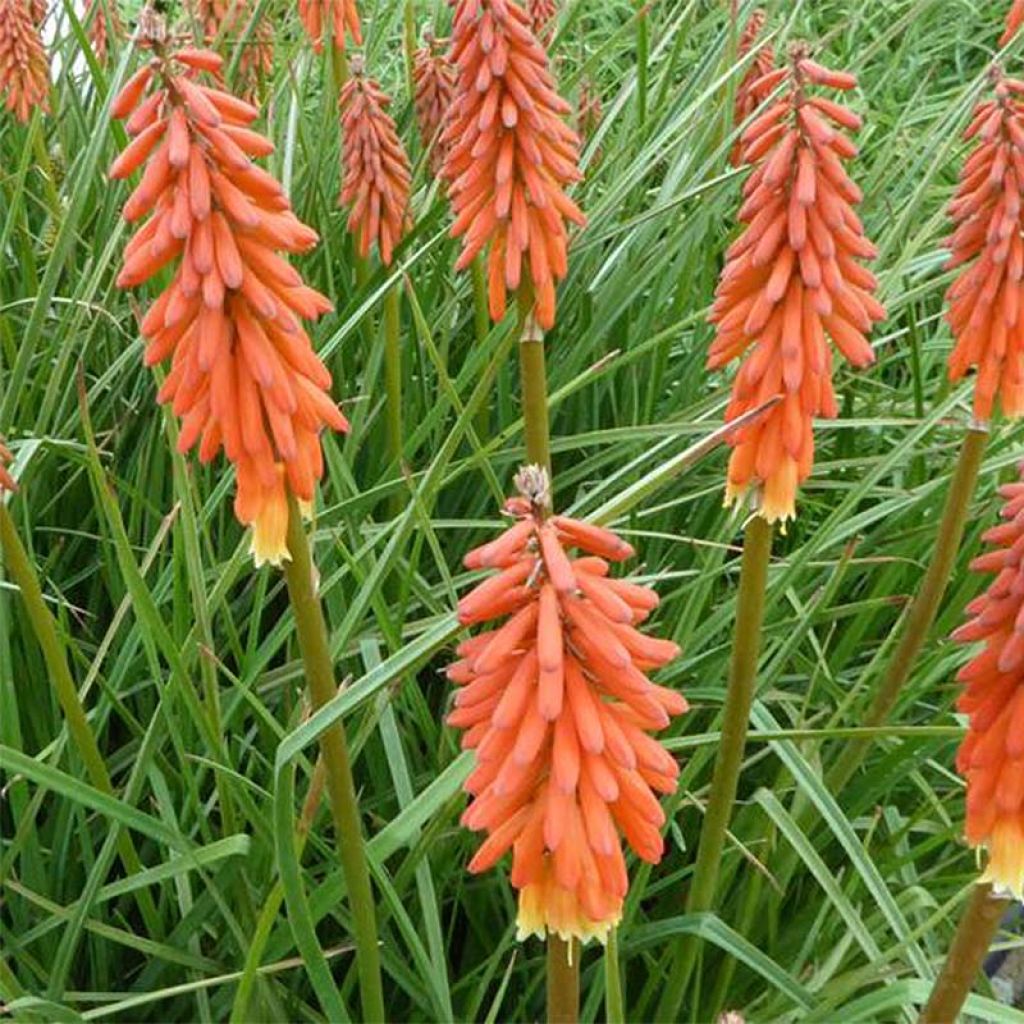

Kniphofia Elvira - Red Hot Poker
Kniphofia Elvira - Red Hot Poker
Kniphofia Elvira
Red Hot Poker, Tritoma, Torch Lily, Poker Plant
lack some planting advice.
Maryse P., 20/07/2018
Special offer!
Receive a €20 voucher for any order over €90 (excluding delivery costs, credit notes, and plastic-free options)!
1- Add your favorite plants to your cart.
2- Once you have reached €90, confirm your order (you can even choose the delivery date!).
3- As soon as your order is shipped, you will receive an email containing your voucher code, valid for 3 months (90 days).
Your voucher is unique and can only be used once, for any order with a minimum value of €20, excluding delivery costs.
Can be combined with other current offers, non-divisible and non-refundable.
Why not try an alternative variety in stock?
View all →This plant carries a 12 months recovery warranty
More information
We guarantee the quality of our plants for a full growing cycle, and will replace at our expense any plant that fails to recover under normal climatic and planting conditions.
Would this plant suit my garden?
Set up your Plantfit profile →
Description
Kniphofia 'Elvira', also known as tritoma or red-hot poker, doesn't spare any effort to brighten up the garden! The warm and invigorating orange colour of its tall flowering spikes catches the eye. Its delicate and airy foliage brings movement and lightness to flower beds, and its bell-shaped flowers attract pollinators throughout summer. This perennial thrives in sunny locations, in light and well-drained, fertile soils.
The exotic appearance of Kniphofia undoubtedly comes from their African origin. Although many hybrids have appeared, they have retained common characteristics. It is a rhizomatous perennial that forms an upright, even bristly, clump. Its long, slender, leathery deciduous leaves possess slightly sharp margins. They emerge from its base and develop in a fan shape, forming a beautiful cup with flexible and trailing edges. It brings lightness to flower beds and comes to life in the wind. The long flower spikes rise and bear a somewhat comical crown at their top, made up of many small, long, pendulous bells with prominent stamens. Their flowering is progressive from bottom to top and evolves in shades, which gradually fade. They are highly popular with insects and complement summer bouquets with their vibrant colours.
'Elvira', named after hybridiser Paul Stringer's wife, is a perennial that blooms in July and August and warms up the garden with its fiery orange tones. It is essential in a flower bed with flamboyant colours and blends perfectly with cannas, crocosmias, and dahlias. Its size allows it to mingle with taller plants and tower over smaller ones. Some shimmering grasses will complete this striking ensemble.
Red-hot pokers thrive in sunny exposures but need water in summer. They do not require much watering in winter. Monitor their location and substrate under certain climates. They need rich soil that is well-drained but not too dried out. They can withstand temperatures below -10°C (14°F), but mulching will help them withstand freezing temperatures.
Report an error about the product description
Kniphofia Elvira - Red Hot Poker in pictures
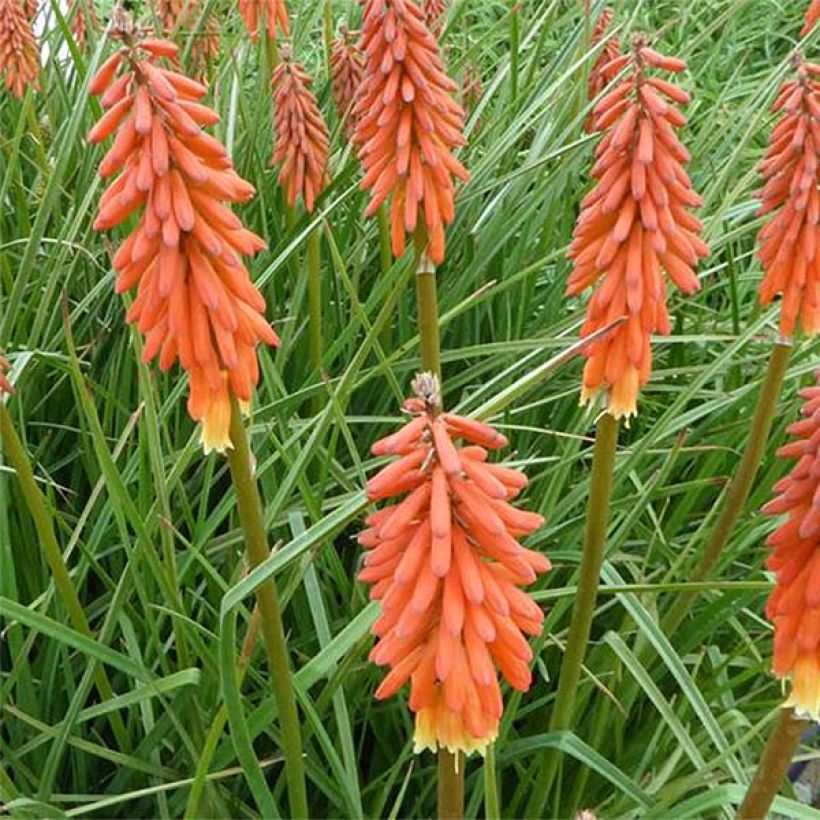

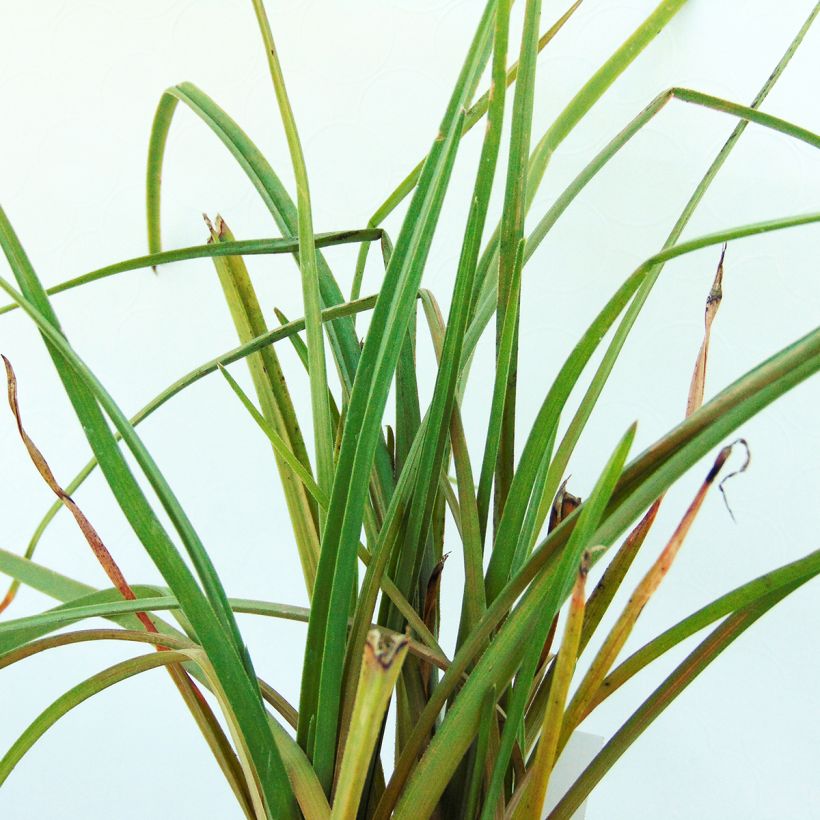

Flowering
Foliage
Plant habit
Botanical data
Kniphofia
Elvira
Asphodelaceae
Red Hot Poker, Tritoma, Torch Lily, Poker Plant
Cultivar or hybrid
Other Kniphofia - Red-Hot Pokers
View all →Planting and care
Plant in spring or autumn in light and well-drained soil. If the substrate is heavy in your garden, add some gravel to lighten it and make sure it is not in stagnant water in winter. It can be greedy, so an addition of organic matter will be beneficial.
It prefers sunny exposures but does not appreciate a lack of water in summer. Watering should be considered if your climate is rather dry. If winter is harsh, mulch the stump with 10cm (4in) of dead leaves or place a bell jar over it.
Planting period
Intended location
Care
-
, onOrder confirmed
Reply from on Promesse de fleurs
Similar products
Haven't found what you were looking for?
Hardiness is the lowest winter temperature a plant can endure without suffering serious damage or even dying. However, hardiness is affected by location (a sheltered area, such as a patio), protection (winter cover) and soil type (hardiness is improved by well-drained soil).

Photo Sharing Terms & Conditions
In order to encourage gardeners to interact and share their experiences, Promesse de fleurs offers various media enabling content to be uploaded onto its Site - in particular via the ‘Photo sharing’ module.
The User agrees to refrain from:
- Posting any content that is illegal, prejudicial, insulting, racist, inciteful to hatred, revisionist, contrary to public decency, that infringes on privacy or on the privacy rights of third parties, in particular the publicity rights of persons and goods, intellectual property rights, or the right to privacy.
- Submitting content on behalf of a third party;
- Impersonate the identity of a third party and/or publish any personal information about a third party;
In general, the User undertakes to refrain from any unethical behaviour.
All Content (in particular text, comments, files, images, photos, videos, creative works, etc.), which may be subject to property or intellectual property rights, image or other private rights, shall remain the property of the User, subject to the limited rights granted by the terms of the licence granted by Promesse de fleurs as stated below. Users are at liberty to publish or not to publish such Content on the Site, notably via the ‘Photo Sharing’ facility, and accept that this Content shall be made public and freely accessible, notably on the Internet.
Users further acknowledge, undertake to have ,and guarantee that they hold all necessary rights and permissions to publish such material on the Site, in particular with regard to the legislation in force pertaining to any privacy, property, intellectual property, image, or contractual rights, or rights of any other nature. By publishing such Content on the Site, Users acknowledge accepting full liability as publishers of the Content within the meaning of the law, and grant Promesse de fleurs, free of charge, an inclusive, worldwide licence for the said Content for the entire duration of its publication, including all reproduction, representation, up/downloading, displaying, performing, transmission, and storage rights.
Users also grant permission for their name to be linked to the Content and accept that this link may not always be made available.
By engaging in posting material, Users consent to their Content becoming automatically accessible on the Internet, in particular on other sites and/or blogs and/or web pages of the Promesse de fleurs site, including in particular social pages and the Promesse de fleurs catalogue.
Users may secure the removal of entrusted content free of charge by issuing a simple request via our contact form.
The flowering period indicated on our website applies to countries and regions located in USDA zone 8 (France, the United Kingdom, Ireland, the Netherlands, etc.)
It will vary according to where you live:
- In zones 9 to 10 (Italy, Spain, Greece, etc.), flowering will occur about 2 to 4 weeks earlier.
- In zones 6 to 7 (Germany, Poland, Slovenia, and lower mountainous regions), flowering will be delayed by 2 to 3 weeks.
- In zone 5 (Central Europe, Scandinavia), blooming will be delayed by 3 to 5 weeks.
In temperate climates, pruning of spring-flowering shrubs (forsythia, spireas, etc.) should be done just after flowering.
Pruning of summer-flowering shrubs (Indian Lilac, Perovskia, etc.) can be done in winter or spring.
In cold regions as well as with frost-sensitive plants, avoid pruning too early when severe frosts may still occur.
The planting period indicated on our website applies to countries and regions located in USDA zone 8 (France, United Kingdom, Ireland, Netherlands).
It will vary according to where you live:
- In Mediterranean zones (Marseille, Madrid, Milan, etc.), autumn and winter are the best planting periods.
- In continental zones (Strasbourg, Munich, Vienna, etc.), delay planting by 2 to 3 weeks in spring and bring it forward by 2 to 4 weeks in autumn.
- In mountainous regions (the Alps, Pyrenees, Carpathians, etc.), it is best to plant in late spring (May-June) or late summer (August-September).
The harvesting period indicated on our website applies to countries and regions in USDA zone 8 (France, England, Ireland, the Netherlands).
In colder areas (Scandinavia, Poland, Austria...) fruit and vegetable harvests are likely to be delayed by 3-4 weeks.
In warmer areas (Italy, Spain, Greece, etc.), harvesting will probably take place earlier, depending on weather conditions.
The sowing periods indicated on our website apply to countries and regions within USDA Zone 8 (France, UK, Ireland, Netherlands).
In colder areas (Scandinavia, Poland, Austria...), delay any outdoor sowing by 3-4 weeks, or sow under glass.
In warmer climes (Italy, Spain, Greece, etc.), bring outdoor sowing forward by a few weeks.































